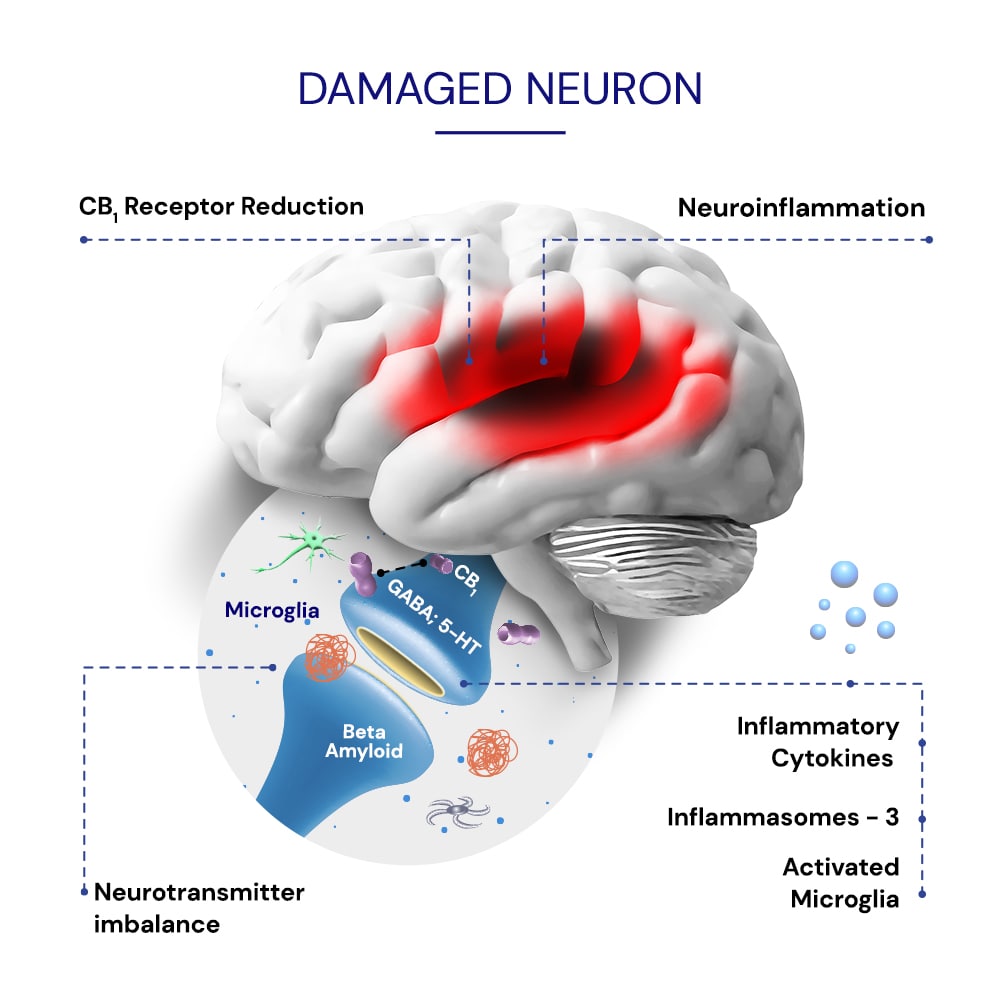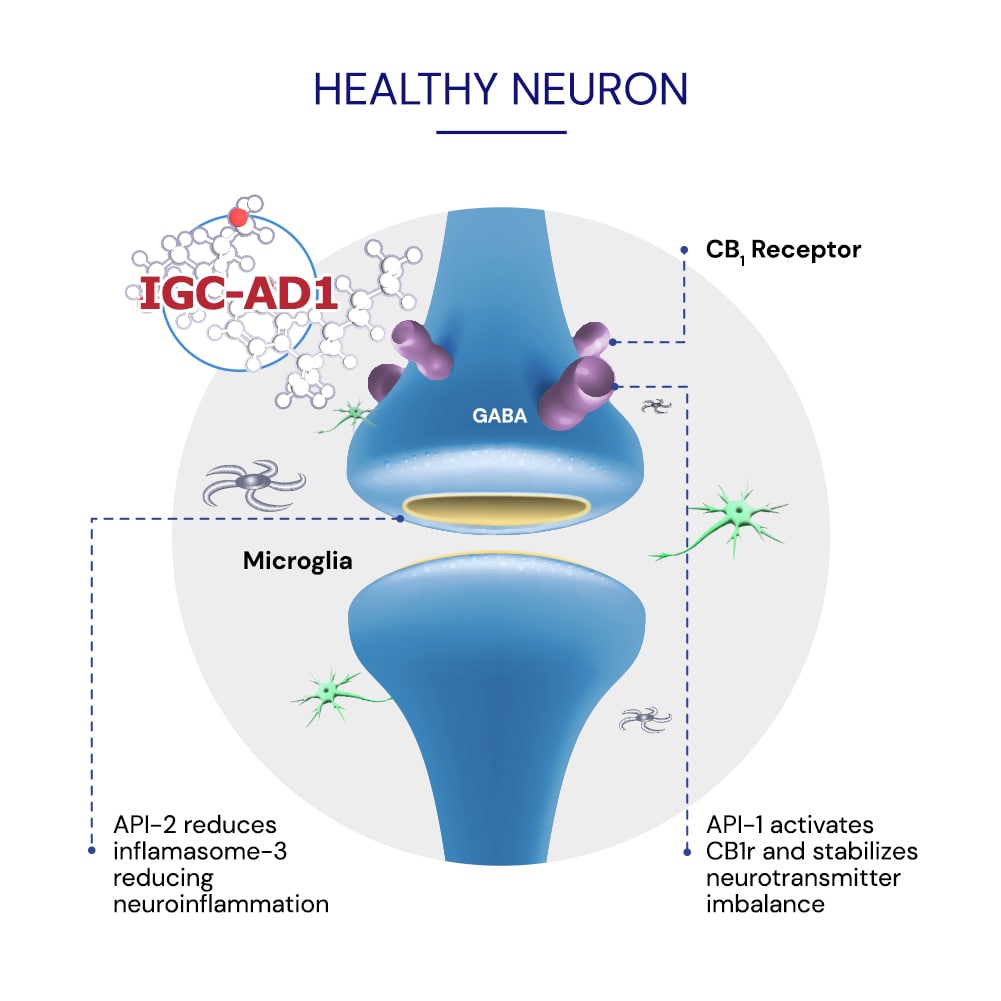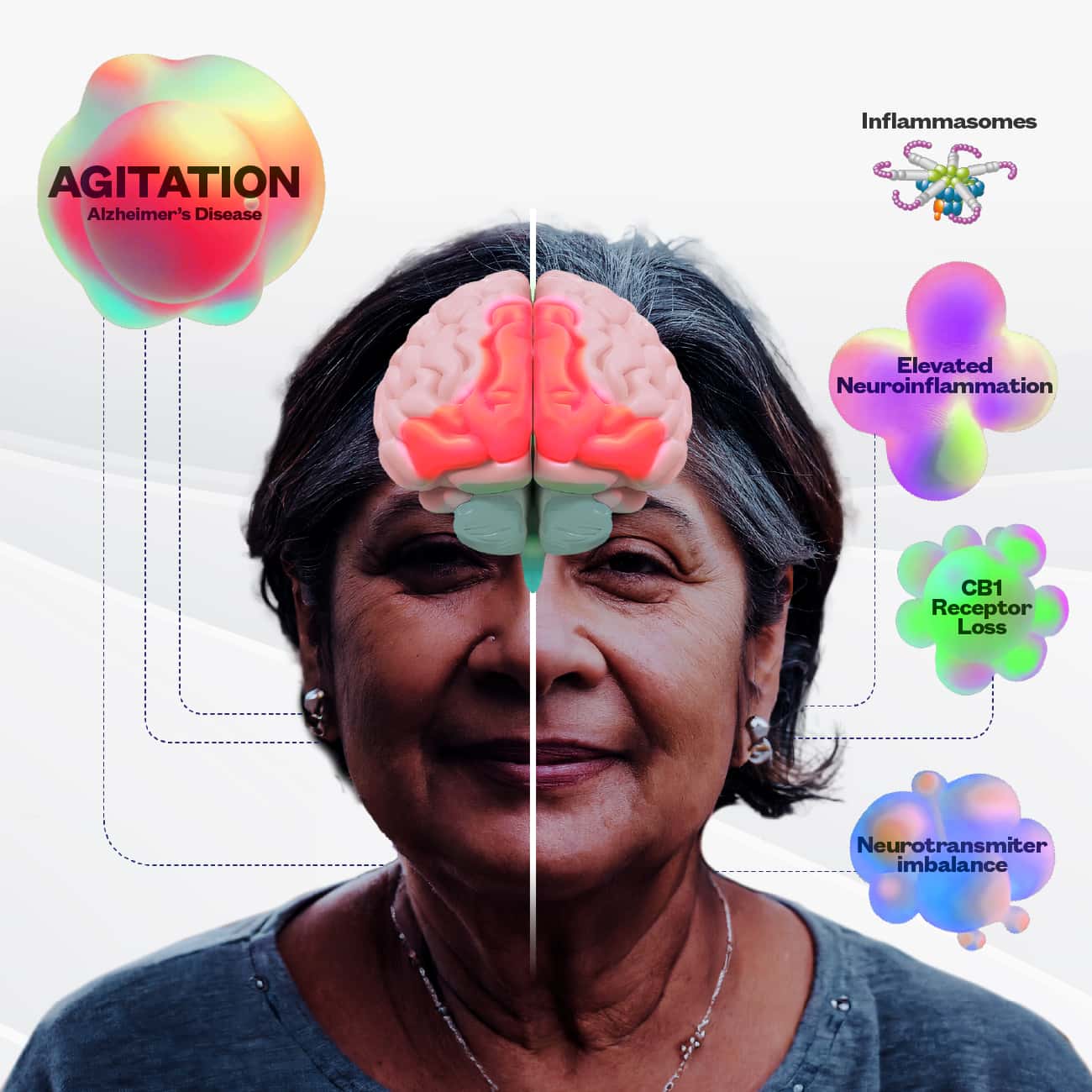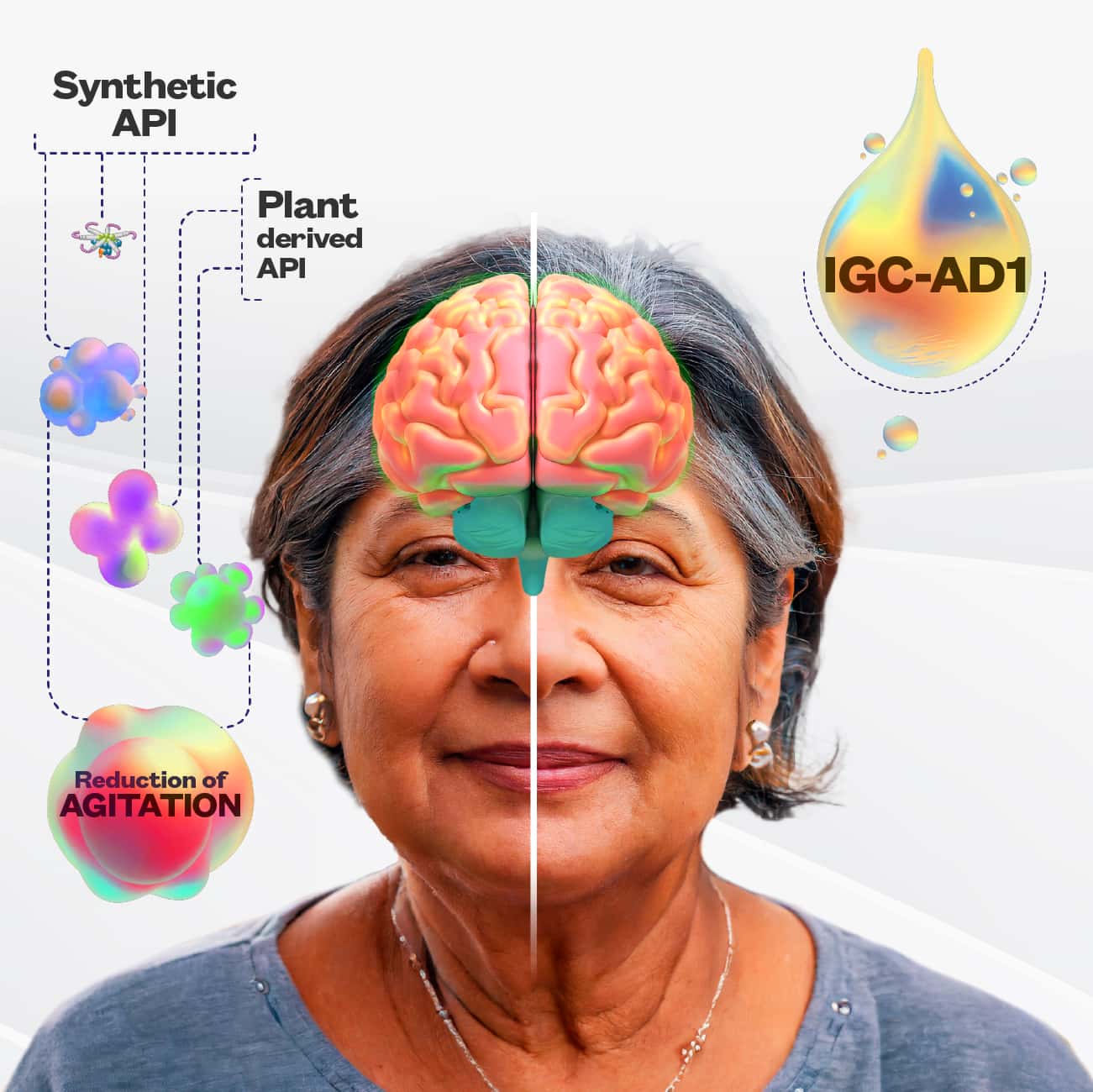IGCPharma's novel approach to
Alzheimer's Disease
Reach out to learn more about IGC-AD1's Phase 2b trial for agitation in dementia due to Alzheimer's

Latest Press Release
IGC-AD1's Two APIs -
Multiple Modes of Action


Alzheimer's disease affects over 55 million individuals worldwide 1
In treating agitation, which affects 40-80% of individuals with Alzheimer’s disease2, IGC-AD1 has shown promising results.


Drag to discover more


Impacting Lives: Our Work Matters
With no known cure for Alzheimer’s disease, our drugs have the potential to change lives.
Americans with
Alzheimer’s
disease in 2022
Americans with
Alzheimer’s disease
by 2060
5th Leading
Cause of death among
Americans age 65+
Expected cost of Alzheimer’s and dementia by 2050 if no treatment or cure is found

From the CEO's desk:
Vertical integration
Periodic updates and perspectives on various aspects of our business.




Science Spotlight
Welcome to “Science Spotlight” – your exclusive platform for insights into neurological disorders. Dr. Juan Manuel Orjuela and the IGC Pharma scientific team bring you in-depth articles on conditions such as Alzheimer’s disease, offering comprehensive updates on treatment and understanding their impact on individuals and families. Explore the roles of caregivers and dynamics within affected families. Stay informed with our latest article.



- Feature Article
IGC Pharma Releases Positive Interim Analysis of its ongoing Phase 2 Trial in Alzheimer’s Research
As of 2023, the estimated number of Americans living with Alzheimer's disease was 6.7 million. However, a lesser-known subsection of Alzheimer's is Agitation in dementia from Alzheimer's Disease (AAD).
In Alzheimer's disease research, the integration of artificial intelligence (AI) enables researchers to uncover patterns and biomarkers faster, facilitating earlier diagnosis and personalized therapies. Embracing these new technologies not only enhances the understanding of AD but also propels the development of innovative treatments for this complex neurological condition.
Caregivers benefit from social interaction, processing their emotions through journaling, prioritizing quality time, and practicing gratitude.
Apathy and depression are two similar neuropsychiatric conditions that are often confused in Alzheimer's Disease.
This episode features an interview with Ram Mukunda and Claudia Grimaldi from IGC Pharma, a clinical-stage pharmaceutical company
Ram Mukunda and Claudia Grimaldi, representing IGC Pharma, a pharmaceutical company in the clinical stage dedicated to enhancing the health of Alzheimer’s disease patients and making these treatments accessible, appear on eHealth Radio and the Alzheimer’s Information and Health News Channels.
Kenia Andrade, Pharma Marketing Manager at IGC Pharma overseeing HOLIEF, a holistic women’s health brand from IGC Pharma and Dr. Juanita Arbelaez, Medical Researcher at IGC Pharma joins eHealth Radio and the Female Health and Health News Channels.

Latest News
IGC Pharma awarded another patent for formulation to treat Agitation in Alzheimer's


Investing in the Future: Building Brighter Lives for Children
At IGC Pharma, we recognize our commitment to patients, caregivers, and their families, including children. Explore our programs dedicated to children.
- World Health Organization, Dementia, Key facts, 15 March 2023.
- Van der Mussele S et al. Agitation-associated behavioral symptoms in MCI and Alzheimer’s dementia. Aging Ment Health 2014;19(3):247–57.

